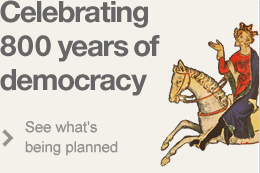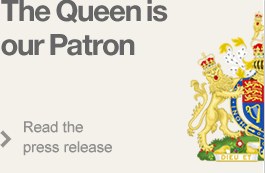By Dr. Sophie Ambler, University of East Anglia.
Richard Poer was one of several bishops from a scholarly background who played an important role in politics at the end of King John’s reign and during the minority of Henry III. Richard and his brother, Herbert (bishop of Salisbury 1194-1217), were the illegitimate sons of Richard of Ilchester (bishop of Winchester 1173-1188). Richard trained at the schools of Paris under Stephen Langton, and was probably influenced by Langton’s writing on political ethics. Little is known of Richard’s own scholarship, though he was later described as ‘learned and distinguished in the highest degree’. Richard was appointed dean of Salisbury by his brother, bishop Herbert, and in 1204 was elected to the bishopric of Winchester. The election drew Richard into a dispute with King John, who wanted his minister, Peter des Roches, elected bishop instead. The king’s influence was decisive and it was not until 1215 that Richard received a bishopric, in very different circumstances.
Like most senior churchmen Richard left England for France when Pope Innocent III, in response to King John’s refusal to accept Stephen Langton as archbishop of Canterbury, placed an interdict on England in 1208. Richard taught theology in Paris until his return to England with his colleagues in 1213. The king, who had submitted to the pope and become his vassal, would now enjoy papal support in the coming conflicts with his barons and the King of France. Innocent insisted that vacant bishoprics should be filled by ‘not only men illustrious in way of life and learning but also men faithful to the king and useful to the realm.’ At first glance, Richard does not seem the sort of candidate whom King John would want as a bishop. He was a pupil of Langton, whom John did not trust, and was not a royal clerk (men with experience in royal administration whom the king would hope to reward with high office). Perhaps Richard owed John’s approval to the influence of his brother, Herbert, who did have a background in royal service. In any case, Richard was to prove that he fulfilled all of the pope’s criteria.
He was consecrated bishop of Chichester on 25 January 1215. Although neither Richard nor his brother were listed as King John’s advisors in Magna Carta, in June 1215, Richard was named as one of the witnesses to John’s will, in October 1216. At the time of John’s death, Prince Louis of France held more than half of England. That Richard was at the king’s side in his final days, as John retreated from Louis’ forces, and that he guaranteed the act that provided for the protection of John’s kingdom, suggests that he was valued and trusted by the king.
The bishops were to prove vital to the cause of John’s son, Henry III, providing practical support and moral authority. At least six were present, with the papal legate, at Henry’s coronation in October 1216. Richard was not among them but he was present the next month at Bristol, where he witnessed the new version of Magna Carta issued by William Marshal and the papal legate in the name of the infant king.
Herbert Poer died early in 1217 and Richard was soon chosen to succeed him as bishop of Salisbury. One chronicle (probably written by the dean of Salisbury) states that the papal legate procured Richard’s translation to the see of Salisbury because Richard was ‘a most faithful ally in dealing with the business of the kingdom.’ Indeed, the same chronicle tells us that ‘the whole kingdom’ had supported Richard’s appointment because he had shown himself ‘a faithful and outstanding fighter’ in the conflict with Louis. Richard assumed his new role at the end of June 1217, a month after the victory of English forces at the Battle of Lincoln. In August, a French fleet bearing reinforcements threatened to land on the Kent coast and turn the war in Louis’ favour. Richard is one of those named by the Dunstable annalist as defeating the French fleet in the Battle of Sandwich. Although he did not fight in the battle (if was the Justiciar, Hubert de Burgh, who led the king’s forces), Richard played a valuable role in succouring the English troops. The St Albans chronicler, Matthew Paris, who probably drew from Hubert’s own testimony, illustrated his account of the battle with images of three bishops (representing Richard and the bishops of Winchester and Bath) dressed in their robes of office, with their hands raised in benediction. A banner shows the bishops saying that they absolve those who are to die for the liberation of England. In 1223, together with the bishop of Bath, Richard took up a central role in Henry III’s minority government. He witnessed the definitive issue of Magna Carta in 1225, as well as its confirmation in 1237 (the latter in his new role as bishop of Durham).
Richard was also a dedicated pastor. As a pupil of Langton, and attendee of the Fourth Lateran Council of 1215, he brought to his dioceses principles that characterised the pastoral concerns of the thirteenth-century Church: the importance of penance and confession and the need to train parish priests in order to equip them for their task of saving souls. To this end Richard drew up a detailed set of statutes for the diocese of Salisbury, which were to be highly influential in the English Church. He also oversaw the translation of Salisbury Cathedral from its original site at Old Sarum to the town.
Sophie Ambler is a Research Associate on the Magna Carta Project (www.magnacartaresearch.org). To find out more about the project, click here.
Featured Article
Magna Carta, or as it is properly called the Great Charter of Liberty, was born on 15 June 1215 at Runnymede when King John – Bad King John as he is more commonly known – was persuaded to accede to a number of demands made...
Read on...Recent Articles
- Magna Carta's American Adventure
- 800th anniversary of Bristol...
- Bristol 800 concert and...
- Emancipation and Magna Carta
- Terrorism and Tolerance -...
- Magna Carta
- Magna Carta Benches mark...
- ABA Magna Carta Memorial...
Stay updated
If you would like to keep informed about the work of the Magna Carta Trust and our partners, please sign up to the newsletter below.
Become a Supporter
There are a number of significant supporter opportunities. Register your interest early to ensure the widest range of options.
Find out more




